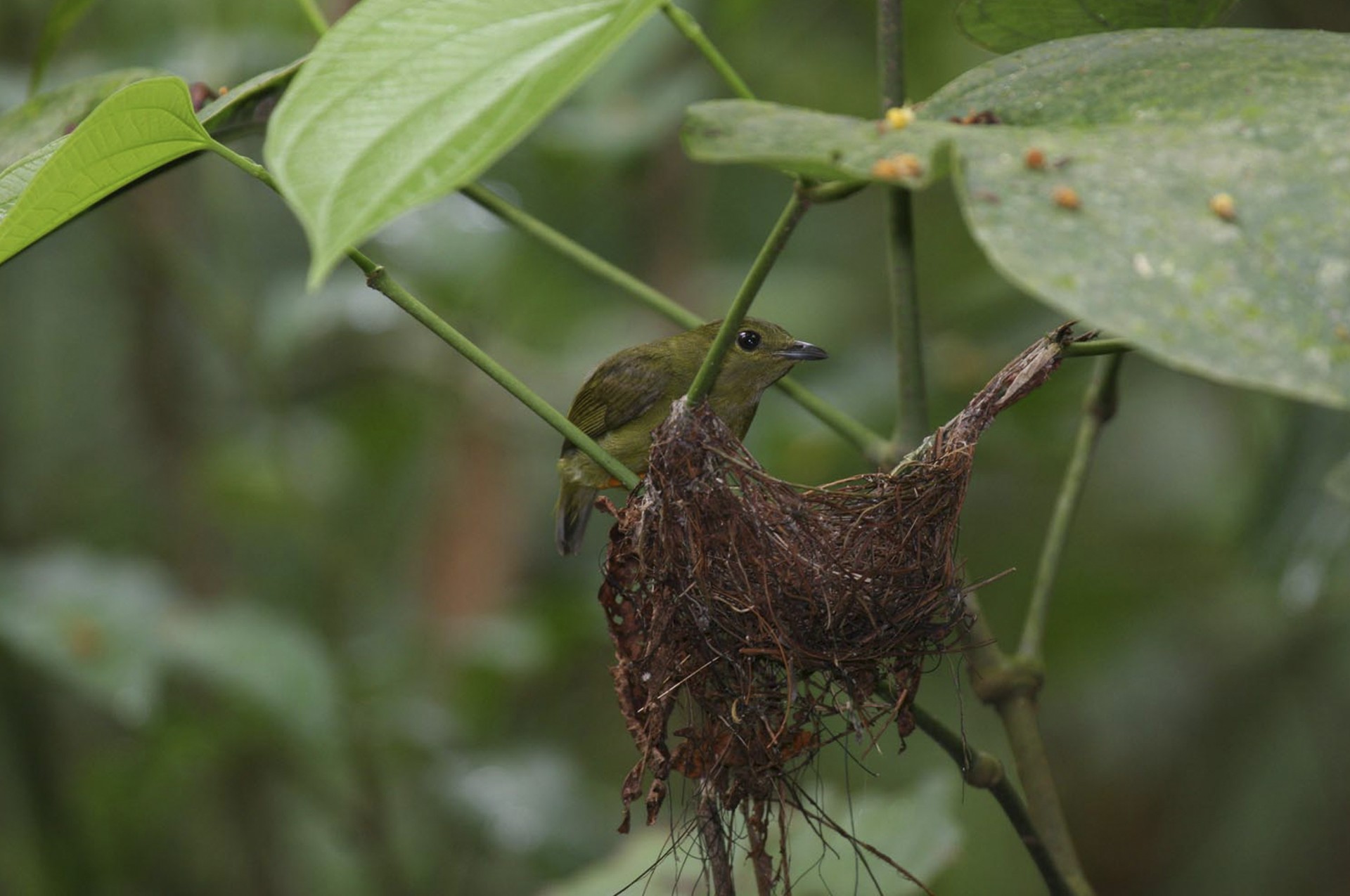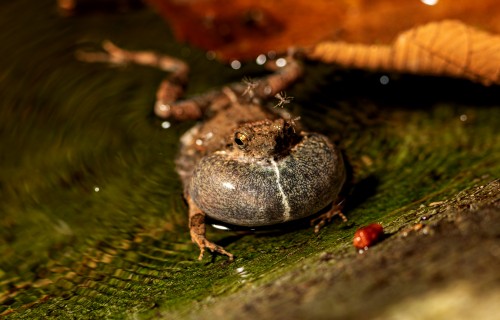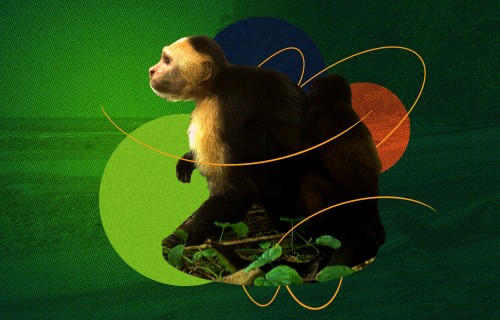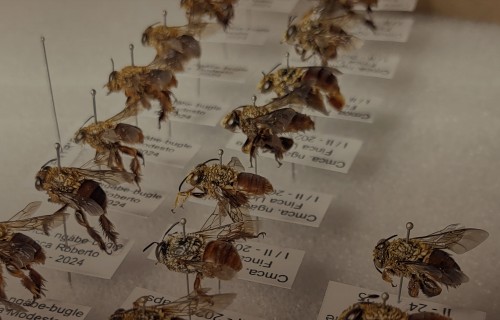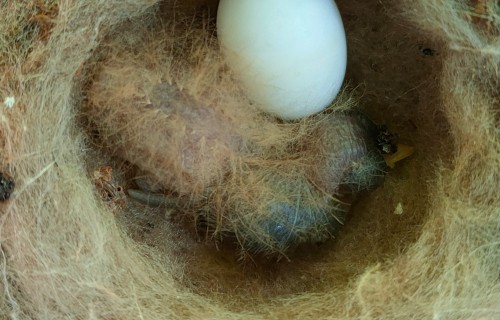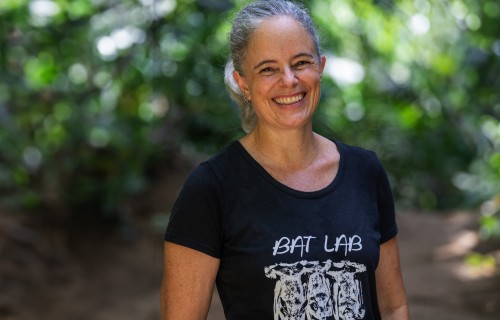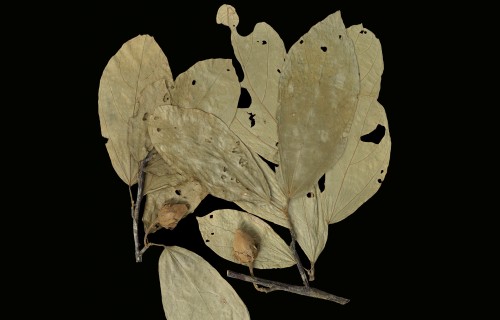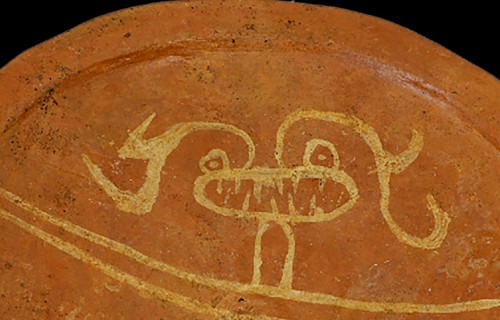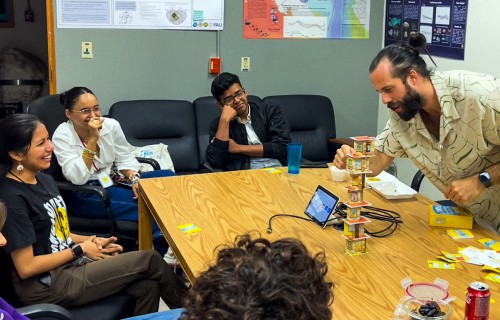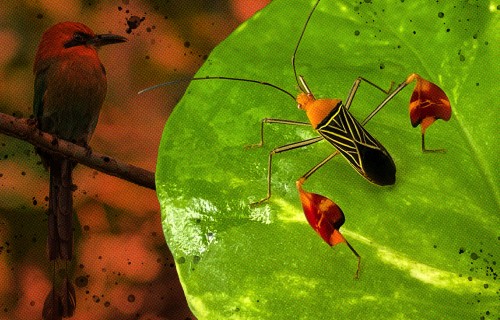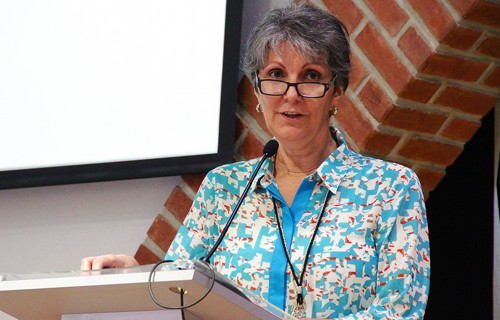Túngara frog tadpoles that grew up in the city developed faster but ended up being smaller.
Trans birds
Testosterone results in male-like behavior
of female golden-collared manakins
Gamboa
Cover photo by Chrsitian Ziegler
How flexible are bird brains in response to hormones?
You know you have detected a golden-collared manakin in the forest when you see a yellow-breasted bird performing acrobatics from sapling to sapling. The adult male does this kind of aerial dance to attract the females and mate, but it also seduces them with a peculiar call: the 'chee-poo'. In nature, this song is almost exclusive to adult males, the same as the courtship dance. They are a secret weapon to make the females fall in love.
Because the expression of sexual behaviors like these is often linked to hormones, Smithsonian scientists Ioana Chiver and Barney Schlinger wanted to find out what would happen if they gave testosterone, a male hormone, to juvenile males and female manakins. In a first experiment, the researchers found that when given testosterone, the juvenile males performed the same courtship acrobatics of the adult males, while the females only performed a few of the male dance moves.
Using the video recordings of this trial, the scientists analyzed the sounds made by the birds. They discovered that, under the effects of testosterone, females could make the male 'chee-poo'. This could mean that their brains have the necessary systems to produce this mating song, or that they can develop them quickly under the effect of male hormones.
In juvenile males, the effect was a bit different. Both those who received the hormone and those who received nothing, produced the 'chee-poo' call. However, the calls by juvenile males treated with testosterone resembled those of females treated with testosterone, whereas calls of juvenile males who did not receive the hormone resembled those of adults in the wild.
“There may be different reasons for these variations in vocal behavior, such as lack of practice or mechanistic bases,” Chiver said.
Females do not produce 'chee-poos' in the wild, so the hormonal stimulus could be motivating them to use certain muscles in new ways. As for juvenile males, it could mean that practice and social interactions have as much weight on their mating song as hormones. Juveniles observe and imitate adult males at a distance during the breeding season, which allows them to practice their vocalizations.
For scientists, this could mean that the brains of male and female birds are not so different. On the contrary, they are flexible. This allows females to exhibit behaviors that are usually only displayed by males.
“Future experiments are necessary to understand where exactly these hormones act within the nervous system, to influence the vocalization changes observed in manakins,” said Chiver.
Members of the research team are affiliated with STRI and the University of California, Los Angeles. Research was funded by National Science Foundation grant NSF-IOS-68 0646459. This work was supported by the Smithsonian Tropical Research Institute, the Pipeline Road Rainforest Discovery and Panamanian MiAmbiente.
Reference: Chiver, I., & Schlinger, B.A., Sex-specific effects of testosterone on vocal output in a tropical suboscine bird, Animal Behaviour (2018), https://doi.org/10.1016/j.anbehav.2018.12.011


